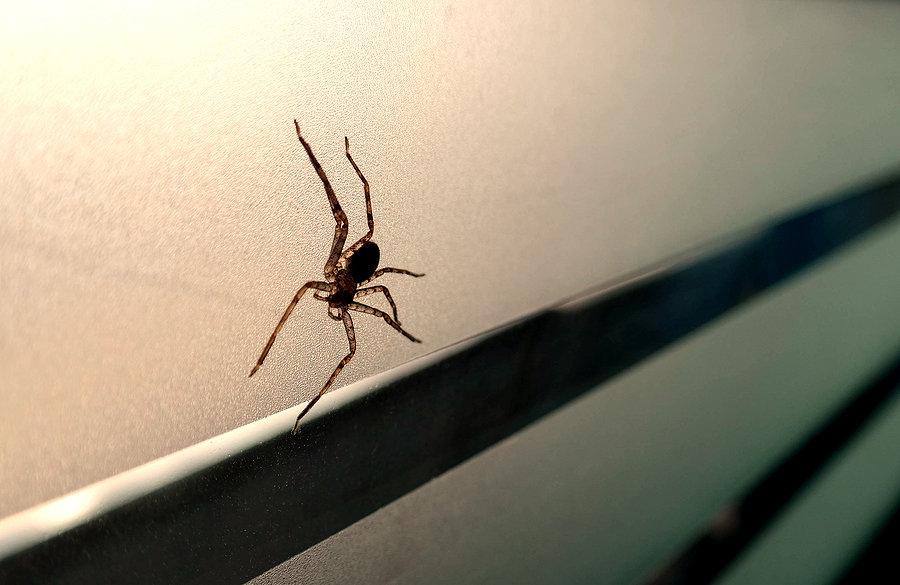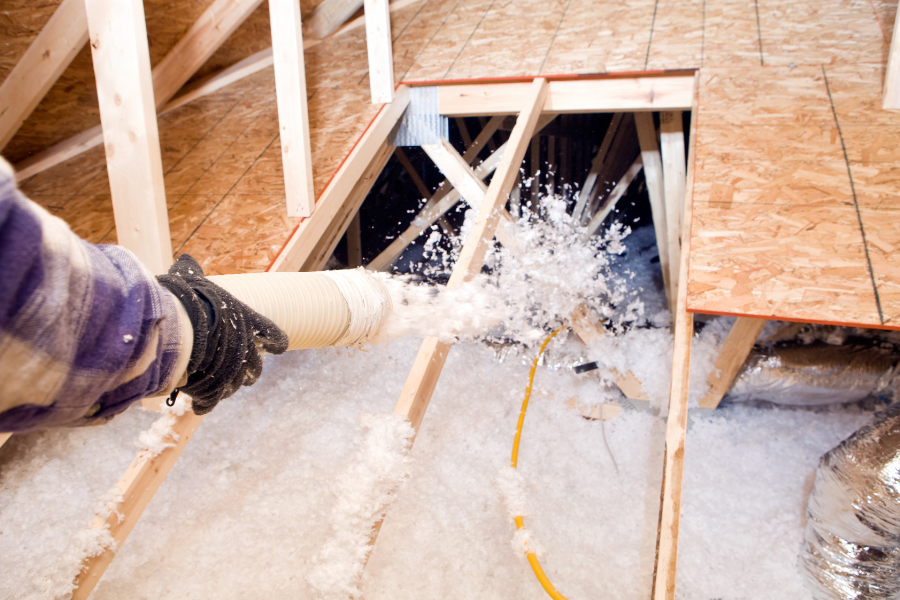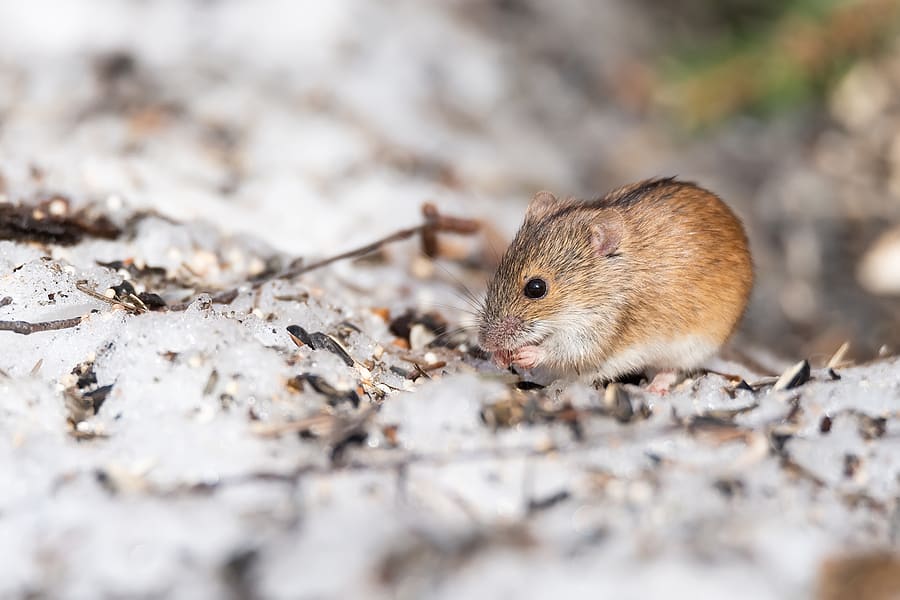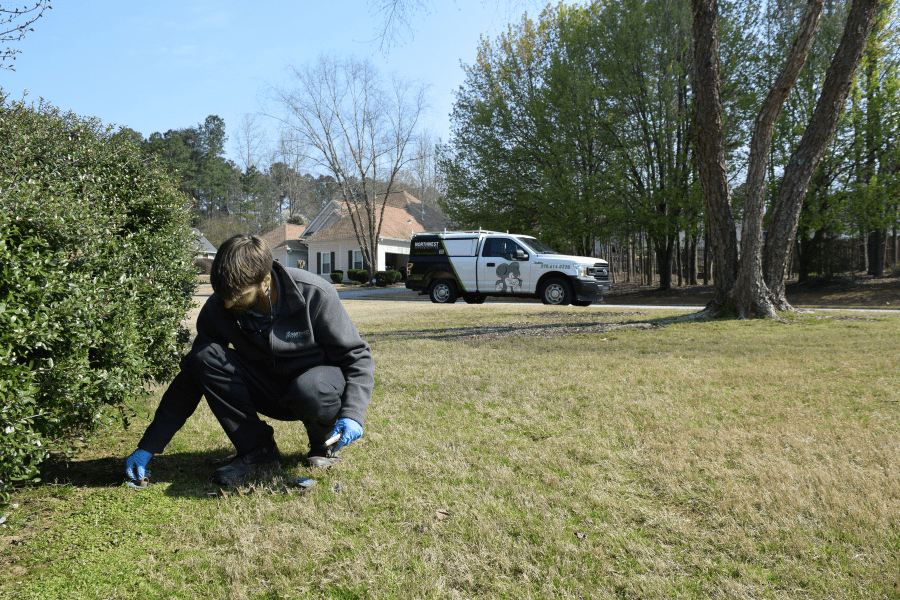READY TO GET STARTED?
REQUEST A FREE ESTIMATE
Fill out the form below or call (888) 466-7849 for a free, no-obligation estimate.

It’s a common myth that spiders come into our homes to overwinter until spring. In actuality, they most likely were already there to begin with. These household pests are more active in fall and early winter for two main reasons: they are preparing winter and the upcoming scarcity of food and they are mating and in search of a partner to reproduce with.
House spiders take up residence in your home year-round. Spiders can be beneficial to have around as a form of natural pest control as they eat other insects (even other spiders) found around your house.
One exception to this is the brown recluse spider. They will seek warmth and food indoors in the winter by hiding out in dark, unused areas of your home. Brown recluses are identified by the distinct violin-shaped mark on their back. They will bite and are considered harmful to humans.
You can prevent spiders in your home by:
If you have an issue with spiders, contact your local pest control company for an inspection.
When Does Swarming Season Begin?
Should I Worry About Cockroaches?

Winter is nearing and that means it is time to make sure your attic doesn’t become a sanctuary for wildlife critters. The most common winter wildlife critters that you should keep an eye out for this winter are raccoons, squirrels, bats, and mice. They can all cause severe damage to your home and pose a significant threat to your health.
The most obvious way for wildlife to get into your attic is through vents and any gaps in your home’s exterior. Once inside, they can make their nest in your attic which results in ripped or destroyed insulation. They could also begin compromising the well-being of your attic from their urine or feces. This can make for a smelly home or become a hazard to your family’s health since animal waste can contain parasites or bacteria.
If you discover wildlife has taken over your attic, then it’s best to call in professional help to get them removed. If your insulation has been impacted, then it’s imperative to get it replaced as soon as possible. Insulation that has been removed or contaminated can lead to higher energy bills and no one wants that.
Reach out to your local wildlife control company to assist with the removal of these pests, so you can get back to enjoying your home this winter!

Contrary to popular belief, pests don’t just disappear when colder weather sets in. Overwintering pests are those that find a warm place to shelter during the winter, most often inside your home! Some household pests thrive year-round because the warmth, water, and food supply in your home allow them to survive even in the harshest weather conditions. Some common winter pests include rodents, roaches, spiders, and bed bugs. For this reason, it’s important that you don’t forget about winter pest control! Here are a few of our favorite winter pest control tips you can use to make your home pest-free.
What Causes A Termite Infestation?
Prevent Bed Bugs this Holiday Season
Where Do Rodents Go In Winter?

With termites being active 365 days a year, termite prevention is a year-round venture. Termite activity is typically more predictable in the winter months, so setting up termite treatments, especially bait stations, is ideal.
Termites in the south are more likely to discover strategically placed bait stations, like Sentricon® Always Active, year-round, but can also discover the bait stations in the winter. This is because in warmer months, termites are more likely to travel further away from their nests to find food. Termites tend to stay closer to home in the cooler months, making it more likely for them to find termite bait instead of food.
The first step to getting your bait stations in place is to have a property inspection. A technician will do an assessment of your property to determine the best placement locations for your bait stations. They will be able to evaluate the size of your property, age of the structure, and if any termites are currently active. The stations are then implanted into the ground with the top placed flush with the soil’s surface. The stations don’t need to be messed with and your technicians know when to check on them, making it something you don’t need to worry about.
If you are interested in getting year-round termite protection, be sure to reach out to your local pest control company to get started today!

You might be thinking that since the weather is cooling down, pests won’t be as active. While that’s the case to some, most pests will be making their way indoors to seek warm shelter. Some homeowners even claim to see more pests in their home once the weather cools down. Here are some of the most common questions about winter pest control.
Which Pests Are Most Active?
Surprisingly, there are some pests that survive throughout the colder months. The main ways they stay alive are through hibernation, migration, and overwintering. Overwintering pests are our main issue in the winter. These are the pests that will migrate indoors instead of to a different part of the region.
Some of the most common pests still seen in the winter are cockroaches, rodents, and termites. Most of the time their activity might slow, but they are still nearby and ready to get back into full gear once the weather warms up.
How Often Should Pest Control Be Done?
The goal of pest control is to keep pests away and prevent infestations. Therefore, quarterly pest control is important. If you miss your regular pest control in the winter, it can create an easy opportunity for pests to get inside.
Winter is the best time for a barrier to be put in place. Some pests including spiders, cockroaches, and rodents can be a bigger issue this time of year, so getting ahead of schedule is key.
If you are ready to set up your winter pest control, give your local pest control company a call and they can help you set up a customized plan to prevent these pests.